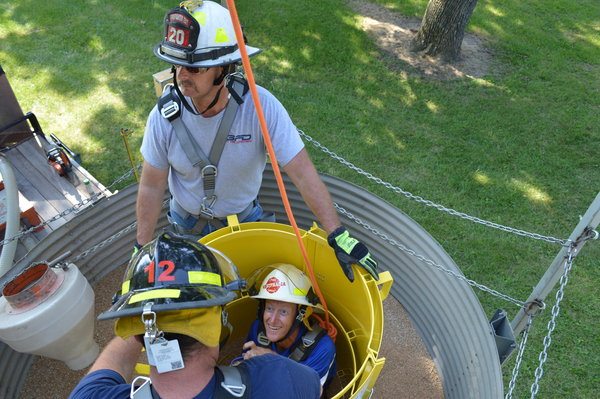Farmers have and continue to be a staple of the U.S. economy, whether it's the traditional family farms or larger, corporate-owned enterprises. Regardless of their structure, farmers face a wide array of risks and need the right type of coverage.
For Nationwide, providing farmers with insurance is part of its history. In 1909, a group of Iowa farmers created Farmland Insurance to protect against losses from fires in their grain elevators. A similar group of Ohio farmers came together in 1926 for car insurance. Dubbed the Ohio Farm Bureau, it would later change its name to Nationwide in 1955. Finally, in 1982, Farmland Insurance joined Nationwide.
Times are changing for farmers
In the simplest terms, Nationwide is insuring the output, input and the farmer, says Nationwide's associate vice president of agribusiness risk management Steve Simmons.
Nationwide's agribusiness is a property & casualty insurance company, part of Nationwide Mutual. Their primary lines of business include property, general liability, auto and workers' compensation.
Notably, they do not insure crops from drought or weather, or animal-related diseases like bird flu or mad cow. Simmons says these risks have a ripple effect in agribusiness “for agribusinesses who provide inputs, rely on outputs and services for them such as sales in fertilizer and service, farm equipment, animal feed mixing and sales, availability of grain, meat processing.”
As long as farmers have farmed, a chance of fire has always been a risk. Areas like the Midwest are especially prone to fire due to the dry air. But fires can strike in a multitude of ways, often through unforeseen circumstances such as a lightning strike.
According to Simmons, farmers dealing with livestock — poultry and hog confinements, particularly — are at greater risk of fire due to the number of fans running and the electricity produced as a result. The fans are used for circulation and exhaust and run at all times to keep livestock from asphyxiation.
The use of drones may come to aid farmers to identify various types of risks. Simmons speculated drone use could occur next year. Through its aerial vantage point, drones can provide thermal imaging and insights into developing risks. Imaging can show where switches are, which fans are running hot, and which areas are need of a replaced fan or motor — all to the benefit of farmers, especially those dealing with livestock.
Related: Do you need insurance for your drone?
'A call to action'
Farmers enter their grain bins for a variety of reasons, but the most common reason tends to be that the grain has gone out of condition and will not flow out of the unloading auger. Unaware of the ”bridges” beneath the surface — grain spaces that can't support them — the farmer will sink into the grain and become trapped. Depending on grain levels, the farmer can become completely engulfed in grain unable to breathe.
The number of incidents of trapped farmers was enough for Nationwide to invest in preventative measures. The grain rescue tube was born as a result. According to Paul Stevenson, Nationwide's senior risk management consultant, the grain rescue tube drops around the trapped farmer and removes the grain.

A local fire department trains responders to use a grain rescue tube. (Photo: Courtesy of Nationwide)
Stevenson views Grain Bin Safety Week as a call to action, just one way to get ahead of these scenarios and keep farmers safe. Nationwide now partners with fire departments across the country to provide training on how to get the tube in, get the grain out and rescue the trapped individual.
Despite it all, Stevenson knows farmers will continue to enter grain cylinders. Since its inception in 2014, Grain Bin Safety Week was born as a result to focus on educating farmers on what steps they can take. During the week of February 18-24, 2018, Nationwide will continue to work with firefighters to rescue farmers trapped in grain bins across the country.
The biggest take away from Grain Bin Safety Week according to Stevenson? Keep out of grain bins!
Want to continue reading?
Become a Free PropertyCasualty360 Digital Reader
Your access to unlimited PropertyCasualty360 content isn’t changing.
Once you are an ALM digital member, you’ll receive:
- Breaking insurance news and analysis, on-site and via our newsletters and custom alerts
- Weekly Insurance Speak podcast featuring exclusive interviews with industry leaders
- Educational webcasts, white papers, and ebooks from industry thought leaders
- Critical converage of the employee benefits and financial advisory markets on our other ALM sites, BenefitsPRO and ThinkAdvisor
Already have an account? Sign In Now
© 2025 ALM Global, LLC, All Rights Reserved. Request academic re-use from www.copyright.com. All other uses, submit a request to [email protected]. For more information visit Asset & Logo Licensing.








